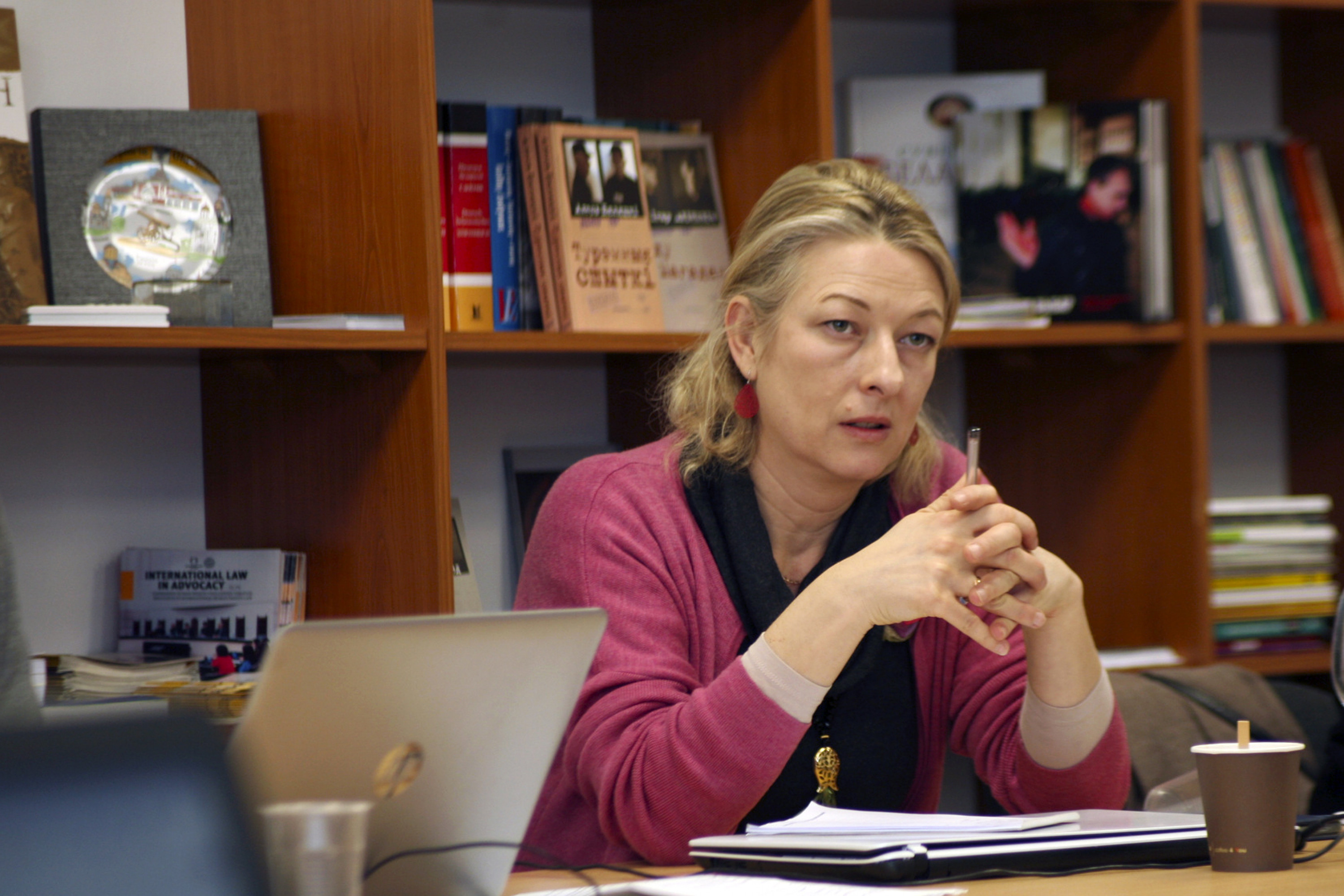Women in Belarus paying heavy price for standing up for human rights – UN expert
NEW YORK (25 October 2021) – Belarus denies women many rights and freedoms guaranteed by international human rights law, and is subjecting women activists to enforced disappearances, torture, ill-treatment and even exile, a human rights expert told the UN General Assembly today.
"The Government's efforts to promote some rights of women at policy level are rarely translated into concrete advancement of women's rights in law and in practice," said Anaïs Marin, Special Rapporteur on the human rights situation in Belarus.
"Flaws in legislation have for decades led to inequalities, discrimination, and protection gaps in cases of gender-based violence and abuses," she said in presenting a report on the human rights of women, lesbian, bisexual and transgender women, intersex persons, and girls in Belarus.
In general, "women are discouraged from participating in public life as proactive citizens due to long-standing gender stereotypes in society that reach to the very top of the state," Marin said.
When women were courageous enough to demonstrate following the disputed presidential election in August 2020, "some women became victims of enforced disappearances, torture, ill-treatment, and other forms of physical and psychological pressure, including the threat of seizure of their children by state social protection organs," she said. "Others have been forced into exile for fear of repression and retaliation."
She described these events as part of a pattern of government suppression of civil society and curtailing of civil and political rights, notably the rights to freedom of assembly, association, and expression. Some 800 people have been imprisoned on political grounds in Belarus and more than 270 civil society organizations and independent media have been or are being liquidated.
"Media freedoms were further restricted by legal, administrative, and practical obstacles that undermined the work of independent journalists and bloggers," she said. "Academics and human rights defenders were forced into exile on a huge scale while perpetrators of grave human rights violations continue acting boldly without fear of facing justice for their crimes."
She described the courageous way Belarusian women and girls have peacefully stood up for their fundamental rights as "truly inspiring, something that can serve as a model for women and girls everywhere who seek respect for their right to a better life, free of violence and discrimination."
She called upon the Belarusian authorities to see peaceful public activism not as a threat, but as an opportunity for improving the protection of all human rights for all.
Ms Anaïs Marin (France) was designated as Special Rapporteur on the situation of human rights in Belarus by the UN Human Rights Council in 2018. She is a researcher with the University of Warsaw, Poland. A political scientist specialising in international relations and Russian studies, she holds a Ph D from Sciences Po, where she studied international public law and comparative politics with a focus on post-communist transformations in Central and Eastern Europe. She has also taken part in OSCE/ODIHR election observation missions, including in Belarus. She has published extensively on Belarusian domestic and foreign policies.
The Special Rapporteurs are part of what is known as the Special Procedures of the Human Rights Council. Special Procedures, the largest body of independent experts in the UN Human Rights system, is the general name of the Council's independent fact-finding and monitoring mechanisms that address either specific country situations or thematic issues in all parts of the world. Special Procedures experts work on a voluntary basis; they are not UN staff and do not receive a salary for their work. They are independent from any government or organisation and serve in their individual capacity.


















